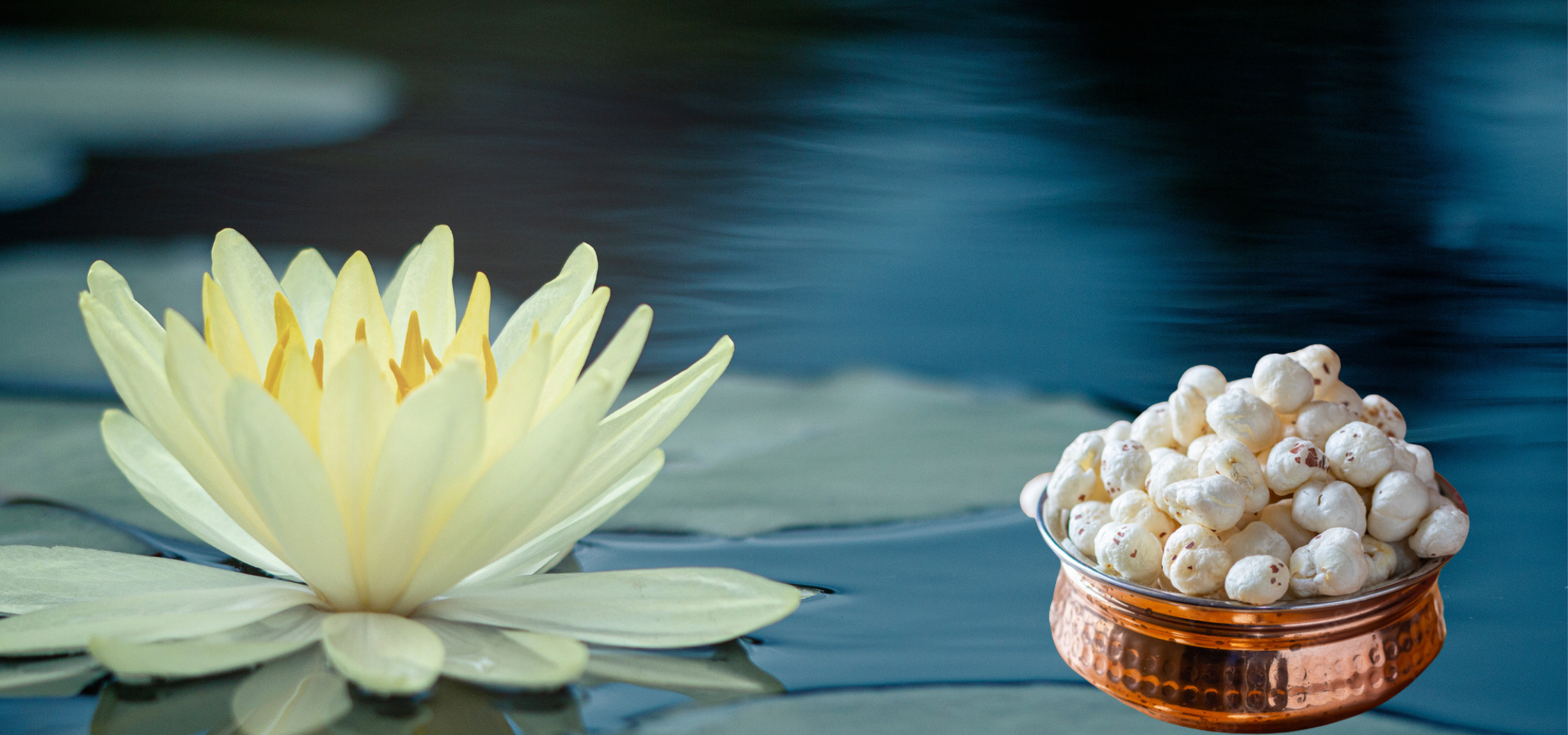

Introduction
Makhana, also known as popped water lily seeds or lotus seed or fox nut, has been an essential part of Indian diets for centuries. Traditionally enjoyed as a wholesome snack, it’s now recognized worldwide as a versatile, nutrient-rich superfood - similar to chia, quinoa, or flax.


Meet Makhana - the next global superfood
For thousands of years, Makhana, also known as Popped Water Lily Seeds and Lotus Seeds has been a staple in India, valued for its ability to provide strength and nourishment. Rich in plant protein, fiber, magnesium, and antioxidants, it is a timeless superfood.
Now, makhana is ready to be discovered by a global audience. Naturally gluten-free with a low glycemic index, it supports steady energy and good digestion. This makes it an ideal choice for a health-conscious lifestyle.


WHY MAKAHANA FITS THE BIOTECH LOGIC
Makhana isn’t included for nostalgia.
It’s included because:
- Light & gut-friendly by nature
- Complements concentrated plant proteins
- Supports smoother digestion & tolerance
Makhana vs. Quinoa vs. Chia Seeds


How Arigoy Stands Apart
We bring together Makhana (Popped Water Lily Seed) , Amaranth, Ashwagandha, Spirulina, Moringa and other functional superfoods in one complete blend.
Each ingredient is carefully chosen to reflect our mission - combining ancient plant wisdom with modern science to deliver purposeful, premium daily nutrition. Rich in natural antioxidants, our blend supports your body’s defense against everyday oxidative stress, offering benefits that go beyond ordinary protein powders.


Historical & Cultural Context
Origins: Makhana comes from the seeds of the fox nut plant, cultivated primarily in eastern India.
Traditional Uses: Eaten roasted, in sweets, or used in Ayurvedic remedies for vitality and wellness.
Cultural Significance: Often used in festivals, rituals, and Indian home remedies for digestion and energy.


Nutritional profile & benefits
Even in small servings, makhana offers impressive nutritional value.


Modern Uses Around the world
Snack Options: Roasted, lightly salted, or spiced for convenient, healthy snacking.
Smoothies & Bowls: Added to breakfast bowls, porridge, or shakes for texture and nutrition.
Baking & Cooking: Can be ground into flour for pancakes, cookies, or other healthy recipes.

